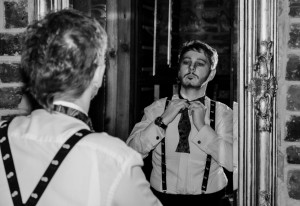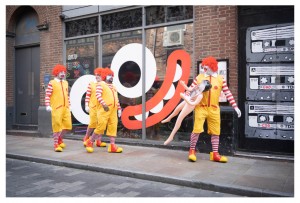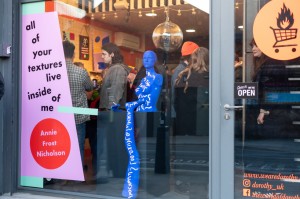“There’s something rejuvenating about getting a good fright…” The Big Interview: Chipo Chung
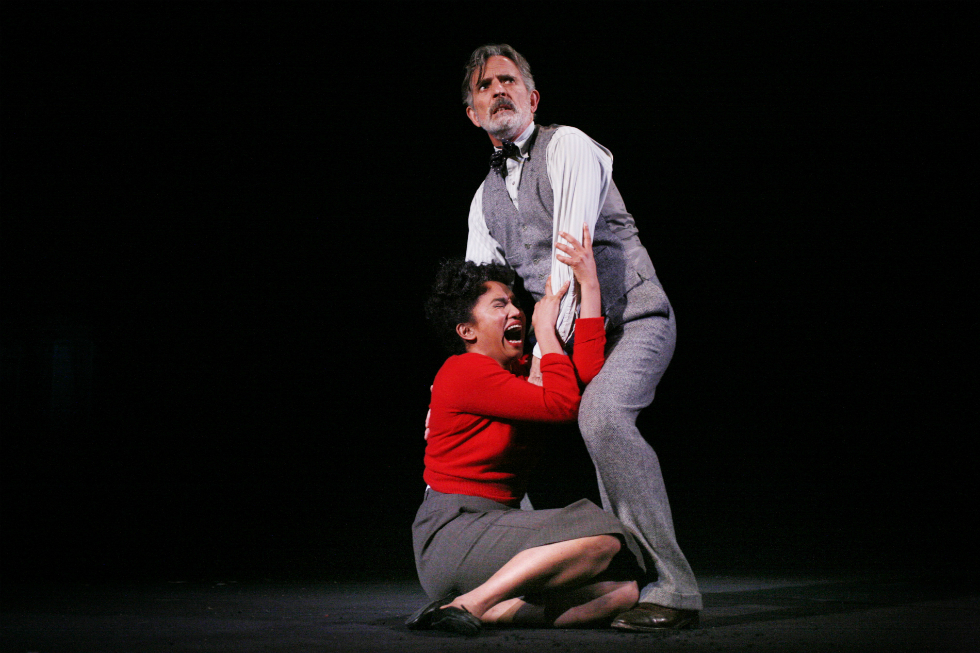
Last seen on our cinema screens, plus Sky and BBC, and now at the Liverpool Playhouse with The Haunting of Hill House, actress Chipo Chung speaks to Jack Roe about her craft, the empowering prose of Shirley Jackson, and giving her audience a good fright…
Liverpool in December: it’s dark, it’s damp, and the eye-line from the outside of the grand old Playhouse theatre is dominated by flashing lights and strangled, determinedly festive sounds of commerce. I’ve been invited to interview Chipo Chung; activist, actress, and one of the leads in a new version of Shirley Jackson’s gothic classic, The Haunting of Hill House.
You may recognise Chung from Danny Boyle’s Sunshine (2007), Thick of It spin-off In The Loop (2009) or alongside Gwyneth Paltrow and Anthony Hopkins in Proof (2005); or perhaps you spotted her in Doctor Who, recent BBC crime drama From Darkness, or in Sky Atlantic’s Fortitude. The RADA trained Yale graduate also has some impressive theatre credits, including The Overwhelming and Phèdre at the National Theatre.
At the Playhouse, it’s the first time The Haunting of Hill House has been adapted for the stage since it was written in 1959. It’s a new commision as part of Hammer film’s recent revival; returning to our cinema screens with familiar gothic horror — including The Woman in Black (1 (2012) & 2 (2014)) with Daniel Radcliffe and Playhouse alumni Leanne Best — and now, the company is branching out into Hammer theatre.
Somewhere between the weather, the setting and the source, I’ve developed a sense that something altogether dark and unusual is brewing.
Being guided through the theatre’s bustling innards, a strange and impromptu behind-the-scenes tour in fast forward, I’m eventually lead to an eerie and empty bar to wait for my chance to talk with the effervescent Chung about her most recent labour of love…
The Double Negative: When and why did you decided to pursue acting?
Chipo Chung: Well acting was always my hobby, since childhood and high school, but it was actually when I was about 14 and I went to a convent and we had to be at school at seven in the morning. It was around then when I decided I would never have a job where I had to wake up early in the morning and go sit at a desk. I’ve always been a night-owl, the routine of acting peaking at about eight o’clock, and finishing work at 10, it suited me much better not having to get up first thing in the morning.
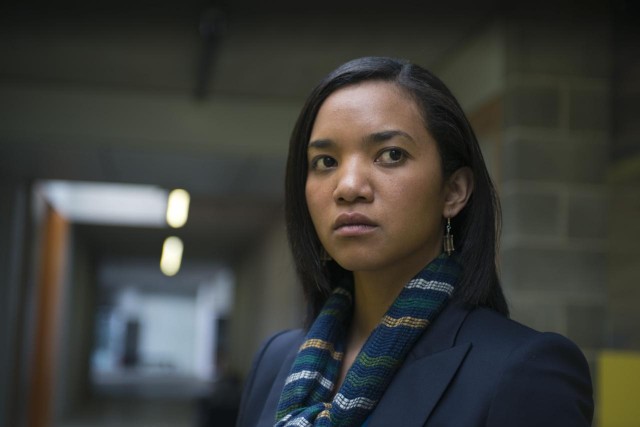
What attracted you to the role in The Haunting of Hill House?
To be honest its quite a remarkable thing to be in a play written by Anthony Nielson, but based on the novel by Shirley Jackson. It sort of has a classical feel to it, because it was written in the ‘50s, written by a woman, and with really complex female lead characters, and I think that really is quite striking in this play.
I’ve been a professional for over a decade now but I’ve never played as complex a part [Theodora]; and Eleanor, played by Emily Bevan, is even more complex. It’s more usual for men to get the complex parts and for women to be given supporting roles, whereas in this play its quite the opposite. And that’s unusual, for me.
[It was written at] A time in the ‘50s where [society] was much more constrained and restrained. Although it’s about a haunted house, a lot of it is about our identity as women, and what it means to be a women, what the potentials are as women, what we’ve been told we can be and we can dream of being.
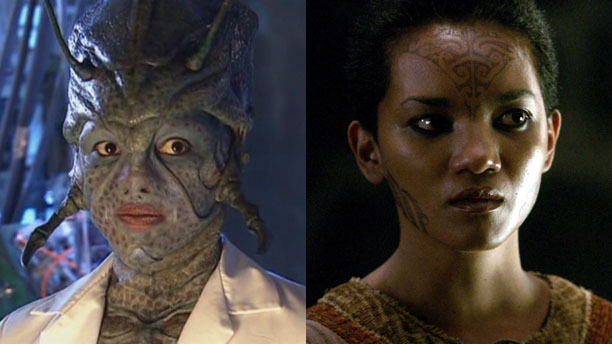
The source material is a classic of the genre, and has been name-checked by other great authors like Neil Gaiman and Stephen King. Do you think this adds pressure on the production?
It’s a beautiful book, a great read, very poetic and very different from other sci-fi, horror fantasy writers in that it is quite feminine and the narrative wanders and is quite dreamlike. Actually I’ve seen the movie [The Haunting (1963)] and I’ve read the book, and obviously each version is very different, there’s obviously some key lines of similarity and truth between them, but what Anthony’s written is something in and of itself.
The basic structure of the book, the technical aspects, what happens with the characters and what happens at the end, all the great moments, the key moments are the same, but the focus of the psychology is very different. Shirley Jackson was writing something a bit more subtle, as a woman, something about feminine friendship; and in some ways, Anthony has really put a magnifying glass on that.
What are your thoughts on putting on such a dark production — revolving around death, spirits and neurosis – during the festive season?
There’s something rejuvenating about getting a good fright every now and again. This time of year, where everything’s dark and gloomy, there’s something kind of cathartic about going out and getting excited about something, and being spooked by something. Sort of clears the cobwebs out.
You have worked widely across stage, film and television. In terms of process and performance, what do you find more rewarding?
Well, I’ve always seen myself as a theatre actor, more naturally because I like being big on stage. Television, there’s a grounding to it. I love the theatre because its more collaborative, the kind of relationships that you form doing a play are very different from what you do [in television], depending on the television of course, but generally speaking you’re kind of separated, and you’re in your trailer, and you come in for your important bits where the camera focuses on you, because that’s the only time you’re being seen.
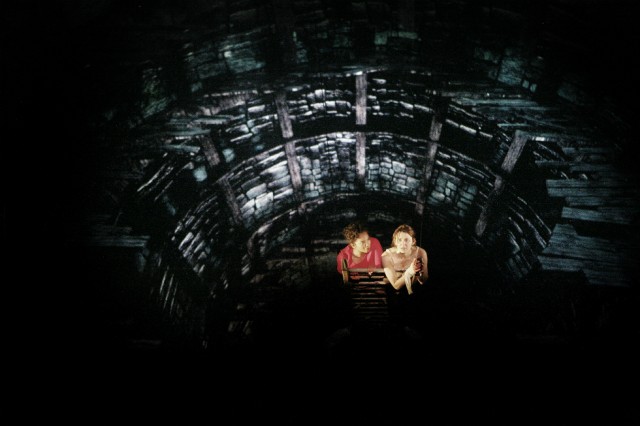
Whereas in the theatre what the writers say, and the director’s vision, and your part in that and how you relate with the other actors, that’s really what it’s about. It’s a lot harder work. I must say, after having taken a break from theatre for a while and coming back to this, theatre is so much more exhausting so, in that way, I guess it must be more fulfilling. No question it’s harder work. It still doesn’t start at seven in the morning though [laughs].
For our readers that want to get into theatre, do you have any advice, any pearls of wisdom?
Pearls of wisdom… I’m obviously not very wise. I mean I started acting when I was in high school with a group of friends and we just used to make stuff and do stuff and then, I’ve gone through the drama school process and become a professional.
What I hate about being a professional is waiting for the phone to ring, because as actors you’re always waiting, you’re not the creator of the work. But a few years ago I did a couple of fringe plays and I directed and produced a small thing I’d been working on for a tiny festival, and honestly, it was the most wonderful reminder of why I had started doing theatre in the first place: basically to express myself, and in fringe theatre to help my friends who were working.
One forgets that in the professional treadmill, but it was a real reminder for me, of that love I had before the paid job. I would say to anyone aspiring to be an actor to keep a hold of that, and to know that treasure is always yours, no-one can give that to you and there’s always opportunity to make your own stuff. Low paid though it may be, but that’s the true love and through that love comes great work.
Jack Roe
See The Haunting Of Hill House at the Playhouse Theatre, Liverpool, until Saturday 16 January 2016 — £14-25
Image: from top: Chipo Chung & Martin Turner in The Haunting of Hill House at Liverpool Playhouse, courtesy Gary Calton; Chung as Trish Stoddart in Fortitude S01E01; Chung as Chantho in Doctor Who and Vivien in Camelot, courtesy BBC, Starz; Chung & Emily Bevan in The Haunting of Hill House at Liverpool Playhouse, courtesy Gary Calton
Read An Invitation To Terror: The Haunting Of Hill House – Reviewed



